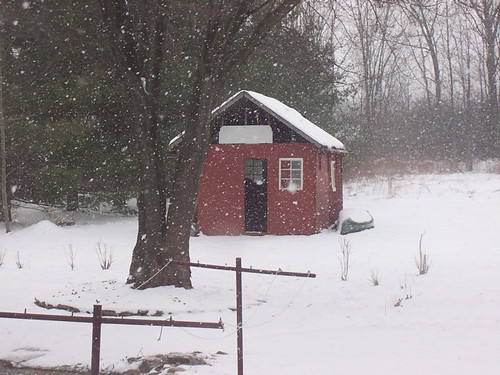You never know what you might see at a poetry slam: a high school student reading a sappy love poem, a regular trying out a rough draft that falls flat, an angry person reading a political poem, or an unknown poet performing a funny piece that takes everyone by surprise. Anyone who comes early and signs up to read can perform at a poetry slam. And the audience is an integral part of the performance: they clap at funny poems, they yell at the judges, they sigh when a poem hits them just right.
The slam poetry movement was begun in Chicago in the 1980s by construction worker and poet Marc Smith. A poetry slam, which usually takes place in a coffeehouse or bar, is a competition in which each poet reads an original poem, and then is awarded a score for the poem and the performance. The three judges, who are chosen randomly from the crowd, hold up their scores on big squares of cardboard. Heckling and cheering are encouraged at poetry slams, and it is pretty common to cheer the poets and boo the judges. Perhaps the best part of a poetry slam is watching how a poem comes alive when it is performed, when a poet breathes the poem to an audience.
For Friday poetry blogging, here is a poem by slam poet Taylor Mali. I don’t have a video clip; you have to imagine him performing it.
Like Lilly Like WilsonBy
Taylor MaliI'm writing the poem that will change the world,
and it's Lilly Wilson at my office door.
Lilly Wilson, the recovering like addict,
the worst I've ever seen.
So, like, bad the whole eighth grade
started calling her Like Lilly Like Wilson Like.
Until I declared my classroom a Like-Free Zone,
and she could not speak for days.
But when she finally did, it was to say,
Mr. Mali, this is . . . so hard.
Now I have to think before I . . . say anything.
Imagine that, Lilly.
It's for your own good.
Even if you don't like . . .
it.
I'm writing the poem that will change the world,
and it's Lilly Wilson at my office door.
Lilly is writing a research paper for me
about how homosexuals shouldn't be allowed
to adopt children.
I'm writing the poem that will change the world,
and it's Like Lilly Like Wilson at my office door.
She's having trouble finding sources,
which is to say, ones that back her up.
They all argue in favor of what I thought I was against.
And it took four years of college,
three years of graduate school,
and every incidental teaching experience I have ever had
to let out only,
Well, that's a real interesting problem, Lilly.
But what do you propose to do about it?
That's what I want to know.
And the eighth-grade mind is a beautiful thing;
Like a new-born baby's face, you can often see it
change before your very eyes.
I can't believe I'm saying this, Mr. Mali,
but I think I'd like to switch sides.
And I want to tell her to do more than just believe it,
but to enjoy it!
That changing your mind is one of the best ways
of finding out whether or not you still have one.
Or even that minds are like parachutes,
that it doesn't matter what you pack
them with so long as they open
at the right time.
O God, Lilly, I want to say
you make me feel like a teacher,
and who could ask to feel more than that?
I want to say all this but manage only,
Lilly, I am like so impressed with you!
So I finally taught somebody something,
namely, how to change her mind.
And learned in the process that if I ever change the world
it's going to be one eighth grader at a time.







